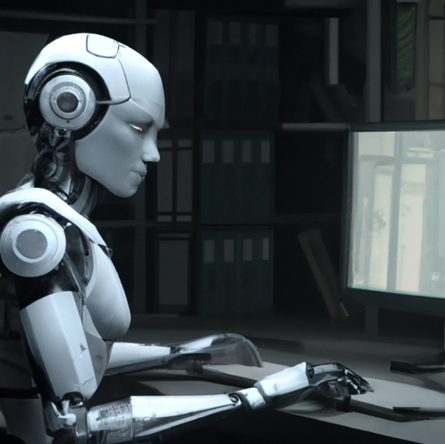Artificial Intelligence (AI) is changing the way we think about search engine optimization (SEO) and content creation. While human-generated content has traditionally been the backbone of SEO, recent advancements in natural language processing (NLP) have allowed AI algorithms to generate high-quality content that is optimized for search engines.
AI-generated content has several advantages over human-generated content. Firstly, it can be created at a much faster rate than human-generated content, which can help websites publish new content more frequently and keep up with changing search engine algorithms. Additionally, AI algorithms can analyze vast amounts of data to identify trends and patterns that humans may not be able to identify.
Informational websites, such as blogs and news sites, are taking advantage of this scenario. While some people may be skeptical of AI-generated content for these types of businesses, this technology has come a long way in recent years. Modern NLP algorithms can generate high-quality articles on a wide range of topics, using data from a variety of sources to create content that is accurate, informative, and engaging.
In addition to generating the content, AI is also being used to optimize existing content for search engines. For example, algorithms can analyze website data to identify areas where the website can improve its search engine rankings. This can include optimizing titles, meta descriptions, and other on-page elements to improve relevancy and readability.
While AI is transforming SEO in many ways, it’s important to note that human expertise is still critical. AI algorithms are only as effective as the data they’re fed and the insights they’re programmed to recognize. Skilled human professionals are still needed to create content strategies, evaluate data, and make decisions based on the insights generated by AI algorithms.
Regarding article creation, human writers bring a level of creativity, nuance, and personalization to content creation that AI algorithms cannot perfectly replicate (yet). Additionally, AI-generated content can sometimes be formulaic and repetitive, which can negatively impact user engagement and search engine rankings. To summarize, AI sounds “too robotic”.
In conclusion, AI is transforming the way we think about SEO and content creation. While human-generated content will always have a place in SEO, AI-generated content can help websites publish high-quality, optimized content at scale, and keep up with changing search engine algorithms, if the tech is applied correctly! As AI technology continues to evolve, we can expect to see more applications of this technology in the world of SEO and content creation.
– Post By Lucas Rasnesvski


